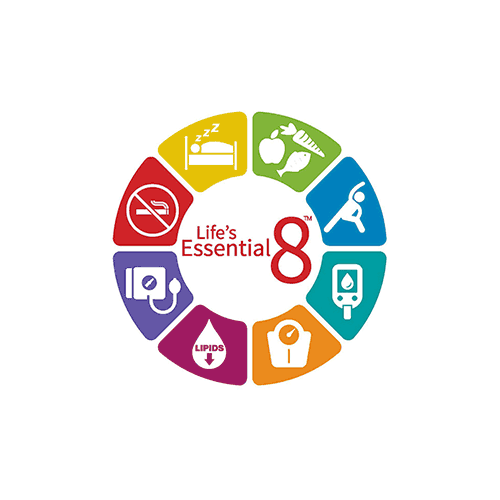
Healthy Habits in Youth Lower Heart Risk Later
Share
Introduction: Why Start Heart-Healthy Habits Early?
Many people think heart disease only affects older adults, but new research says that’s not the full story. A study published in JAMA Cardiology found that the choices we make for our heart health in our teens, 20s, and 30s have a big impact on whether we develop heart problems later in life. This research followed thousands of people over several decades and showed that staying heart-healthy when you're young can protect you as you age.
What Is the Life’s Essential 8 Score?
To measure heart health, the American Heart Association created something called the Life’s Essential 8—or LE8 for short. It looks at eight important areas:
- Healthy eating
- Physical activity
- Not smoking
- Healthy sleep
- Good weight
- Normal blood pressure
- Healthy cholesterol
- Normal blood sugar
Each part is scored out of 100, and the scores are averaged to give a final number. A higher score means better heart health.
The Study: Tracking Health Over Time
This study used data from the CARDIA project, which has been following over 4,800 people since the mid-1980s. Researchers tracked LE8 scores from age 18 to 45, then looked at what happened after age 45. They found that people who had higher scores—meaning they kept their heart health in good shape for many years—were much less likely to develop cardiovascular disease or die early.
More Time with Good Health = Less Risk
The biggest takeaway? The longer someone stayed heart-healthy, the lower their risk of heart problems later. People in the highest group of LE8 scores had up to 88% lower risk of heart disease compared to those with the lowest scores. Even those in the middle had much better outcomes than those at the bottom. This shows that every improvement counts.
Improvement Matters Too
Even if you don’t start off healthy in your 20s, there’s good news. People who improved their heart health over time—even if they didn’t reach the top group—still saw benefits. Those who increased their LE8 scores over the years were less likely to get sick compared to those whose scores dropped or stayed low. In short, better habits at any point can still make a difference.
Helpful for Everyone
The study also pointed out that people with higher education, women, and white participants tended to have better heart health scores. This means that making heart-healthy resources and education available to all communities is very important. Everyone should have the tools to build a healthier future.
Easy Ways to Boost Your Score
Improving your heart health doesn't mean making huge changes all at once. Here are simple things you can do:
- Take a 30-minute walk most days of the week
- Eat more vegetables, fruits, and whole grains
- Cut back on sugary drinks and processed foods
- Get 7 to 9 hours of sleep each night
- Don’t smoke—and if you do, get help to quit
- Visit your doctor regularly to check your blood pressure, cholesterol, and sugar levels
Conclusion: Your Heart’s Future Starts Now
The research is clear—what you do in your early adult years has a lasting impact. Whether you're just starting out or trying to improve, taking steps toward better heart health now can protect you for decades to come. The sooner you start building healthy habits, the more you’ll benefit in the long run.
